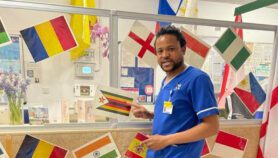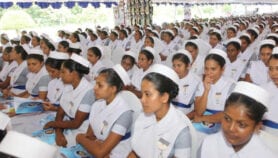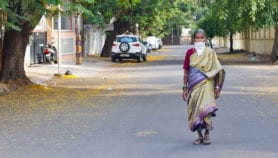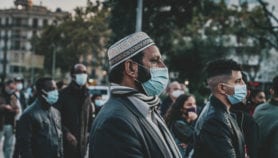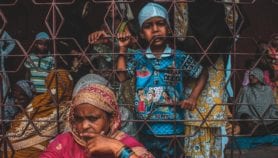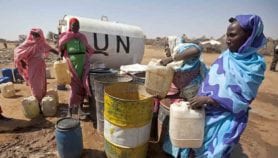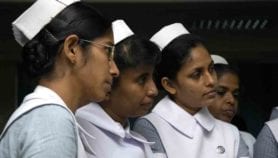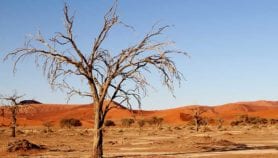By: Bernardo Esteves
Send to a friend
The details you provide on this page will not be used to send unsolicited email, and will not be sold to a 3rd party. See privacy policy.
The so-called ‘brain drain’ — scientists migrating from developing countries to richer ones, in search of a better scientific infrastructure, more funding and less bureaucracy — has become a familiar feature of the global scientific landscape. But there are parts of the developing world in which this phenomenon is being turned on its head.
|
| Philip Fearnside is among a number of Northern scientists who have decided to relocate to Latin America |
For these individuals, the unique research opportunities offered by their adoptive countries — as well as the possibility of experiencing a different culture — are frequently enough to persuade them to leave home countries boasting solid a scientific tradition, and settle in parts of the world where the institutionalisation of science is relatively recent.
A new life in the lab
Take, for example, the British geneticist Andrew Simpson, who has become something of an emblem for the ‘reverse brain drain’ — at least in Brazil. Simpson visited the country for the first time in 1985 to pursue his research into parasitic diseases. “I was interested in Brazil because it was one of the few countries where I could find parasitic diseases and an infrastructure for studying them,” he says.
In 1990, a six-month collaboration with the René Rachou Research Center in Belo Horizonte inspired him to make a longer commitment to the country. “I enjoyed working there more than I did in England, and I decided to stay,” he says.
For Simpson, the decision to stay in Brazil did not mean that he had to say goodbye to vital, cutting-edge scientific research. In 1995 he started at the Ludwig Institute for Cancer Research in São Paulo, coordinating the genome sequencing of two bacteria (Xylella fastidiosa and Chromobacterium violaceum) — in competition with 25 other Brazilian laboratories. Simpson is now considered to be one of the leading figures responsible for the development of genomics in Brazil on a national scale.
“…I enjoyed working [in Brazil] more
than I did in England, and I decided to stay…”
“It was an excellent experience,” he says. “Brazil gave me the wonderful chance of coordinating a project with such dimension.” Thanks to the success of his projects in Brazil, last year Simpson was invited to move to New York to head the Ludwig Institute’s international research programme, finding ways to develop its activities in China, Russia, India, Africa and Eastern Europe (see Lessons from Brazil’s genome project go global).
Nevertheless, the legacy of his achievements in Brazil lives on. Soon after publishing the genome of Xylella fastidiosa, the Brazilian researchers were commissioned by the US to sequence a related strain that attacks grapes in California (see Brazil’s genome study a boon to US winegrowers).
John Walker, a British biochemist, paints a similar picture of his experiences in Colombia. Walker relocated for personal rather than professional reasons, but the move has allowed him to pursue his research on leishmaniasis, in particular identifying biochemical targets for the development of new drugs and vaccines. He is now coordinator of the biochemistry and molecular biology unit at the International Center for Medical Research and Training (CIDEIM), an independent medical research and training institute in Cali.
Having a field day
Away from the laboratory, Latin America’s exceptional ecosystems — which range from the wilderness of Patagonia to the Amazon’s rich rainforests — entice large numbers of ecologists and conservationists to the region. But rather than restricting themselves to occasional field trips, some of these researchers have decided to immerse themselves permanently in the landscapes and wildlife they study.

The Swiss-born Werner Flueck and Jo Anne Smith-Flueck, who is American, have played a crucial role in understanding and conserving the endangered Patagonian huemul deer through their work at Argentina’s National University of Comahue.
And Patagonia’s unique ecology has also attracted German scientist Stefan Woelfl, who is now a researcher at Austral University in Chile. Woelfl describes the country as offering “more space to live and more liberty to develop science”.
The benefits of living in close proximity to your fieldwork are echoed by American ecologist Philip Fearnside, whose work at Brazil’s National Institute for Research in the Amazon enables him to study firsthand the impact of deforestation on the global climate. He has lived in the region for the past two decades. “Far from representing a professional sacrifice, living in Manaus is a privilege for me, because I have access to a lot of data about the Amazon on a permanent basis,” he explains.
Taking the rough with the smooth
Despite enjoying the opportunities their adoptive countries provide, these researchers are well aware of the difficulties Latin American scientists face, as they now share them. Woelfl points to a lack of specialists in his field, and inadequate funding for basic research. For John Walker, the problem is bureaucracy. “The import and customs procedures often result in long, frustrating delays on chemical and equipment deliveries from abroad, and the levels of import taxes for scientific research materials are punitive,” he says.
Nevertheless, these obstacles are often smoothed out by the alternative way of life these researchers encounter in Latin America. “In Brazil there is more sun, more heat and good food, and people are more receptive,” Andrew Simpson has told a Brazilian newspaper. “All the clichés are true.” John Walker makes a similar point. “On a personal level, my wife and I are very happy with our lives in Colombia – despite the political problems – and we are currently applying for residency visas,” he explains.
His case is not uncommon: few of the researchers interviewed by SciDev.Net plan to leave the Latin America countries where they have settled. And even Andrew Simpson promises to return to Brazil: “I am definitely planning to come back there within the next couple of years.”
[Photo credits: Pew Fellows Program in Marine Conservation / FAO]



